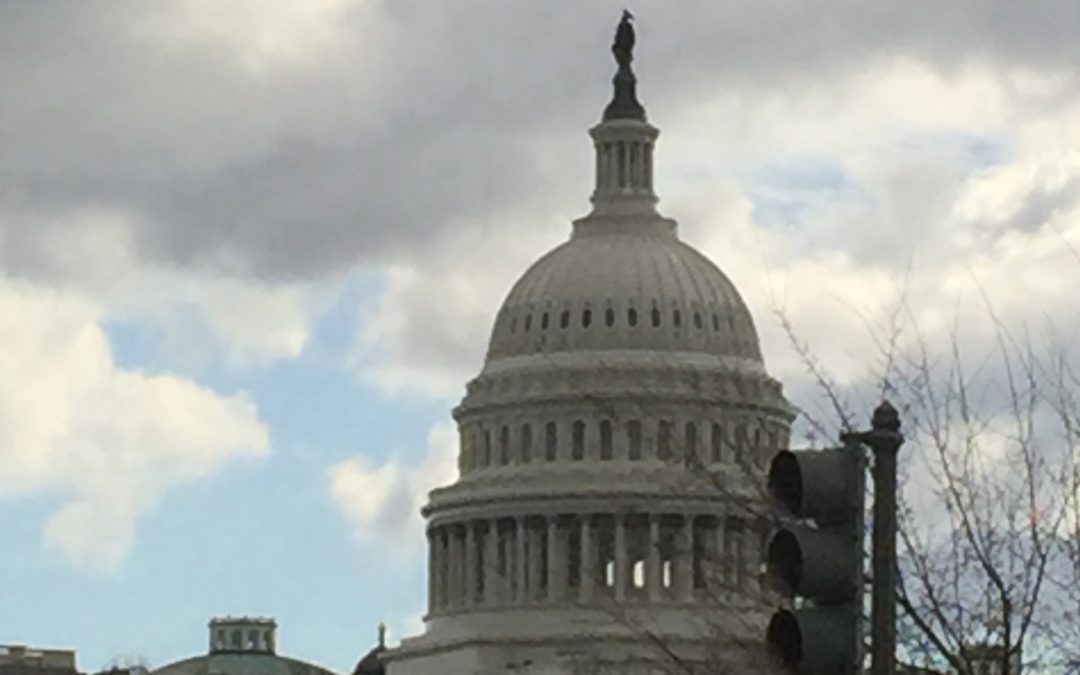On May 30, 1985, I skipped high school. No, it was not senior skip day, nor did I really desire a break from school. I wanted to travel from Appleton to Oshkosh to see President Reagan speak. He had just introduced his plan on what would eventually become the Tax Reform Act of 1986 and first went to Wisconsin to sell it to the American people. Contrary to my parents wishes, I did hear the speech in person and watched the ensuing process that produced the new tax code. It was something that sparked my interest in learning about taxes and how (and why) they work the way they do.
In law school, my intellectual curiosity about taxes turned towards the charitable deduction and was one of the major factors that drove me to pursue a career in charitable gift planning. I fell in love with the fact that our country effectively allowed citizens to choose where their tax dollars could make a difference. Over the years, my admiration has grown into awe as I have participated in conversations about the deduction that sparked amazing charitable gifts changing the course, and even saving, countless lives.
My awe of and now concern about the charitable deduction led me to go to Capital Hill on February 16th where I joined nearly 200 nonprofit leaders in a whirlwind day of meetings hosted by the Charitable Giving Coalition (@ProtectGiving). We visited 130 House of Representatives and Senate offices, including 23 members of the Senate Finance Committee and 26 members of the House Ways and Means Committee. The goal of these meetings was to demand that lawmakers recognize the value of charitable giving and the tax incentives that encourage Americans to contribute more to causes important to them.
As Congress embarks on long-promised comprehensive tax reform, we asked Senate and House members to protect, enhance and expand charitable giving incentives like the charitable tax deduction. And we cautioned that limiting these incentives – whether imposed intentionally or consequentially – will cause charitable giving to decline.
My objectives for this day were simple: underscore the importance of preserving the charitable deduction’s scope and value, encouraging the expansion of a universal charitable deduction available to tax payers who use the standard deduction, and sharing stories about how initial major gift discussions that focused on the charitable deduction were often a catalyst to getting donors to give large gifts to charity. Throughout the day, I gained perspective and found myself both assured that our Members of Congress support charitable organizations and daunted by the way our seemingly simple issue gets quickly complicated.
Tax reform requires that attention is paid to the details. If you are interested in the details of our day and the realities of what is likely going to be proposed, here are a few of my takeaways from the day:
- Visiting Two Senators and Two Representatives Bring Reality and Uncertainty
- Other Charities and Members: The members of our group were from Illinois and visited Illinois members. It included professionals from the Jewish United Fund/Jewish Federation of Metropolitan Chicago (@JUFChicago), the second largest employer in Illinois, Advocate Health Care (@AdvocateHealth) and University of Saint Mary of the Lake (@MundeleinSem). We were able to meet with a legislative assistant from the Minority Whip, Senator Dick Durbin (@SenatorDurbin), and the Chief of Staff with Senator Tammy Duckworth (@SenDuckworth). In addition, we were able to meet with a legislative assistant of Representative Peter Roskam (6th District IL, @PeterRoskam). Representative Roskam is extremely important in discussing the tax reform process as he is the Ways and Means Tax Policy Chairman for the 115th Congress and his sub-committee’s work will ultimately guide the discussion.
- Representative Danny Davis: Finally, we met with Representative Danny Davis (7th District IL, @RepDannyDavis), his Chief of Staff, and his Deputy Chief of Staff (who leads tax policy). This meeting was the one I was most looking forward to as Representative Davis is my congressperson and the minority leader on the Ways and Means Committee. Our discussion was very detailed and provided us with a real look at the uncertain tax reform process that faces taxpayers and charities alike thanks to Yul Edwards and Jill Hunter-Williams.
- The Details of Tax Reform are Lacking
- The “Blueprint”: Last summer, House Leadership presented their framework for tax reform which they entitled, A Better Way, which is commonly known as the “blueprint.” The long, but not detailed, 35 page paper on the plan spends about 1 page on the charitable deduction starting on page 21. Every one of our conversations referred to this document as the current thinking on how tax reform is going to happen. There has been a lot of discussion about many parts of the reform process and Congressional Leadership seems to be hoping that President Trump could help the process along.
- No Details, Good Economy Will Solve All Problems?: Unfortunately, there is little, if any, detail about what changes will be proposed to the charitable deduction. The document focuses on the concept that the better the economy is, the more people give to charity. While I agree with this fact, the framing of the concept ignores the incentive that the charitable deduction provides in general and specifically with the gifting of appreciated securities. Simply put, charitable gifts don’t just occur because times are good, but rather they occur because charities ask for them. And, many of those conversations include a discussion about tax deductions.
- But the Benefits and Support of the Charitable Deduction are Easy to Quantify
- Clear Quantitative Support: Based on the IRS 2013 data, our state, Illinois, had just over 6.1 million tax returns filed with just over 2 million of those returns (33%) using the itemized deduction in lieu of the standard deduction. Those tax payers claimed over $7.8 billion in charitable deductions. A recent study found that 74% of voters would rather give $1,000 to charities than the federal government, and 88% of voters believe it should be easier for people to deduct gifts to charities from their taxes.
- Chilling Effect of Blueprint: The Coalition indicated that their data shows that if the standard deduction triples (which it appears may be the case as the blueprint, aka A Better Way, discusses doubling it) that tax payers who itemize their deductions would decrease from 33% to 5%. While I was not able to substantiate this claim, if true, the roughly 2,000,000 Illinois residents who itemize their deductions would decrease by 1,700,000 to 300,000 (based on the 2013 IRS cited above). Without any corresponding universal charitable deduction, not tied to an itemized deduction, the charitable community’s ability to use the concept of a charitable deduction as a conversation starter with donors is eliminated with 85% of prospects with which it can currently do so. In other words, charities will not be able to start engaging the future major gift prospects until they are elite major gift prospects.
How You Can Help Preserve the Scope and Value of the Charitable Deduction
Normally, you would read a list of items you are requested to do. Or you might read the best practices for communicating with members of Congress. Many requests are worthy and best practices are well founded, but I am going to ask you for 1 very specific request. Please send 3 emails to the tax policy legislative assistant for your representative and your two senators. A small handful of these emails can make a huge difference. Telephone calls can’t be printed off and US mail to the Capital does not always reach its intended recipient. To find the tax policy legislative assistant, you will need to:
- Google “legislative action center _______ staff” and place the name of your representative and senators in the blank.
- Look for the name of the legislative assistant for tax policy. Here’s the example for Joe Fawell, the legislative assistant for Representative Peter Roskam.
- Email your representative and senators on their pages, addressing your email to the specific person in charge of tax policy. Here’s the example email page for Representative Danny Davis.
- In your email, be specific on the effects of chilling conversations about the charitable deduction would have on you and/or your charity.
Conclusion
My lifelong tax journey that I started in 1985 has made me accept the fact that most of the population will see the government’s taxing authority as something that takes hard-earned wages out of their pocket. However, I ask you to put aside that belief for a day and join the millions who have their lives changed by charities. You will see you have a choice of where you want to help others and, by your action, can preserve something that is so very right about our tax code.

